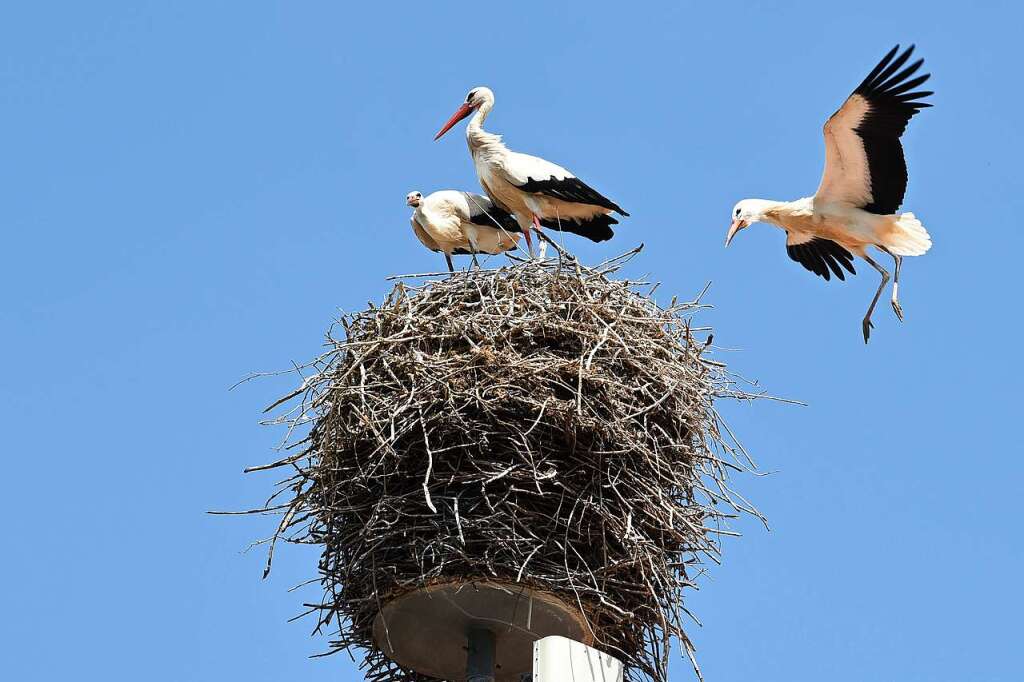If you want to look after storks, you can contact the White Stork Association in Breisgau. However, fear of heights is prohibited.
You should be free from giddiness, be interested in ornithology and have a little time with you, then nothing stands in the way of a career as a stork carer. The municipal animal enclosure Mundenhof is looking for people who will volunteer to devote themselves to the feathered youngsters and who will help the Weißstorch Breisgau association. The association with its chairman Gustav Bickel takes care of 180 stork nests in 57 localities.
The supervisors accompany the storks throughout the year: between the end of January and the beginning of February, the adult birds return from the south. Then the helpers count the nests, observe the breeding process and pass the collected data on to the Max Planck Institute for Animal Behavior in Radolfzell.
There is work all year round
The highlight is the ringing in June: every newly hatched stork is given a metal or plastic ring with a personalized number. This year there were a total of 48 young storks in 25 nests at Mundenhof. “That is 1.92 chicks per nest, a good result,” says Susanne Eckert, head of the Mundenhof, happily. Together with the fire brigade, 33 young animals were ringed. In August it will be goodbye again. The storks move to warmer climes – to southern Spain, Portugal or West Africa. The sailing artists cover a distance of up to 300 kilometers per day.
The ringed animals reveal valuable information to the experts: for example, their age, which nest they prefer and who is the fastest stork in the country. In autumn and winter, the supervisors take care of the nests.
–


